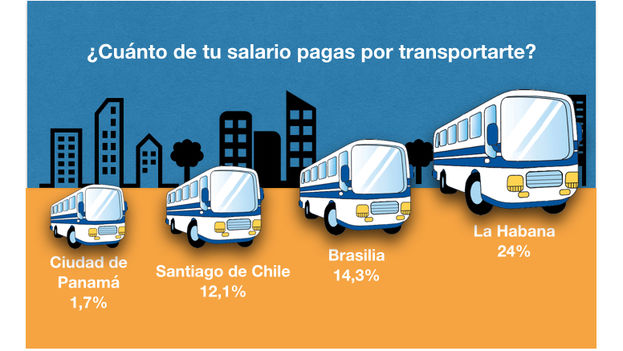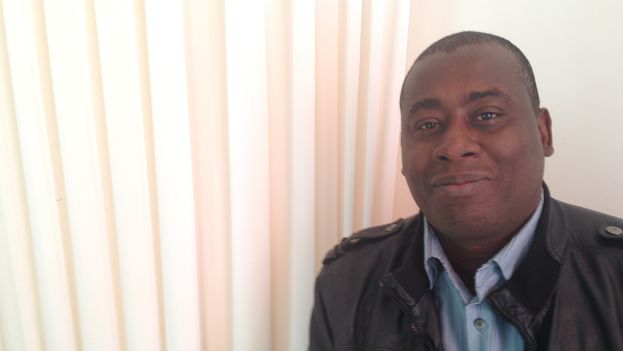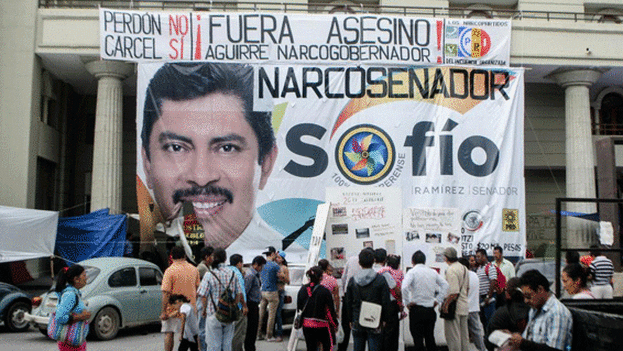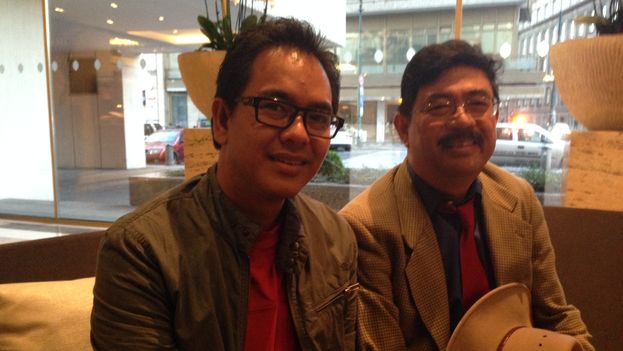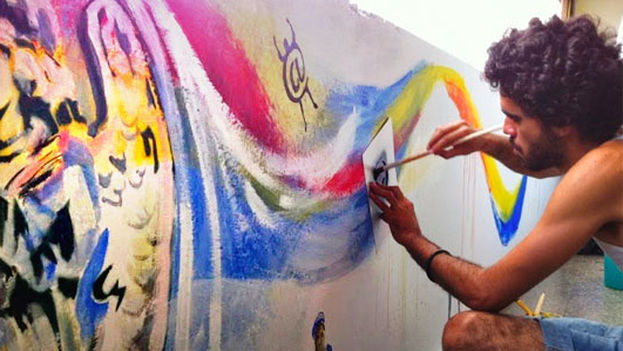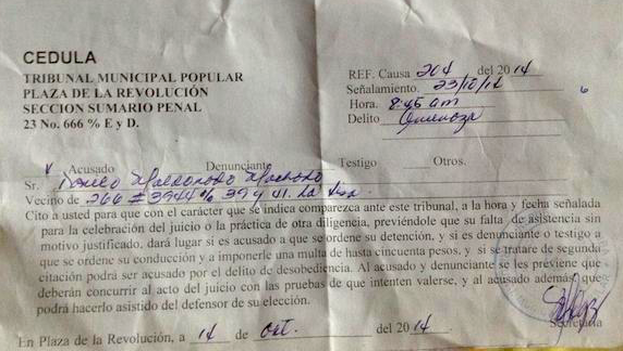
14ymedio, Rosa Lopez, Havana / 1 November 2014 — Why do young people prefer video games to the high-flown revolutionary exploits that national television displays? Is the audio-visual “packet” displacing official programming? Those questions hang in the air – although without being directly enunciated – at the Forum on Cultural Consumption in Cuba: Art, Culture, Education and Technology, which is being held this weekend in the Mayo Room of the Cuba Pavilion.
Participating in the official event are Abel Prieo*, Raul Castro’s adviser on cultural topics, Miguel Barnet and other members of the Cuban Union of Writers and Artists (UNEAC) and the Saiz Brothers Brigade. The meeting of intellectuals takes a critical stance in the face of an avalanche of material – uncontrolled by government – that is circulating within the country, especially through the so-called “packet” or “combo” that is distributed by alternative means.
The manifest purpose of this event is to diagnose the ways culture is consumed in Cuba and accordingly “to create an alternative platform for art, education and new technologies and in this way reach a much wider audience.”
Abel Prieto stated in one of the sessions that it seemed to him “that the intellectual position of irrational rejection of new ways of consuming culture is as harmful as that of a post-modern relativism which accepts everything as good. That relativism brings us a blurring of precisely the objectives of a cultural policy, the objectives of the humanism that today is absolutely in bad shape.”
In the forum several references were made to the topic of video games, and Prieto himself judged it as “a complex and dialectical process,” to immediately add that “some are inoffensive, but others are essentially violent and become an addiction.”
Cuba thus seems to be peeping out to the great modern debates about violence and addiction to which video games may give rise, but for the moment it is only permitted to publicly discuss a portion of those involved in the possible problem. The government’s cultural policy tries to determine from above what each Cuban sees on his television screen and what is good or bad for his subsequent social attitude.
Abel Prieto also attacked the “packet” and “technological nomadism” through storage devices like USB memory. The ex-minister of culture opined that “one of the tricks of these new ways of consuming culture is that they give the idea that the person is choosing what he wants to consume, but he does it from the paradigms that are imposed on him. Democracy and diversity are hidden beneath a trap of the hegemonic agenda of the entertainment.”
As evidence that the ruling party surrenders before the existence of those phenomena, Prieto ventured that “we have to promote more diverse and inclusive packets.” The problem is that the greater part of the Cuban people are no longer willing to have officialdom make their audiovisual menu for them.
Tedium, low-quality production, excessive ideology and secrecy have for too long characterized the audiovisual products cooked up in the laboratories of the Communist Party Central Committee Department of Revolutionary Orientation (DOR), the entity that governs television programming and the content of all national press media.
However, the recent speeches in the Forum also hint at alarm. Abel Prieto asserted that “at no time will the State cede to private individuals the decision of cultural policy.” His immediate call “to not demonize new cultural consumption in an authoritarian manner” did not manage to erase the implicit threats in his prior words.
“Hopefully knowledge and cultural information will come into fashion,” concluded Prieto, but he failed to include in that sentence the adjectives “revolutionary” or “politically correct” which always hang over every audiovisual production promoted and encouraged by the ruling party.
Regrettably, culture continues to be governed more by political statements than by demands for education or personal growth.
This morning the Forum’s sessions will continue, missing the voices that defend video games, the “packet,” and the democratization of information.
*Translator’s note: After being ousted as Minister of Culture Prieto was given the title of “Cultural Advisor.”
Translated by MLK



